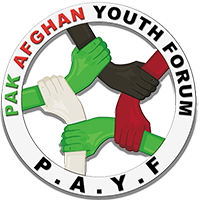The Islamic Emirate of Afghanistan’s (IEA’s) ban on women in medical education isn’t just a gender rights issue—it’s a death sentence for countless women & children. With maternal mortality already among the highest globally, who will save lives when female doctors are silenced?
Maternal Mortality
As the number of female healthcare professionals plummets, women and children will face increased barriers to accessing essential medical care. Cultural norms in Afghanistan often prohibit women from receiving treatment from male doctors, making it critical to have a robust female healthcare workforce. The ban threatens to reverse years of progress in maternal healthcare, where Afghanistan already experiences one of the highest maternal mortality rates in the world, with over 600 women dying per 100,000 live births. Without trained female medical professionals to provide culturally appropriate care, these rates could escalate, putting countless lives at risk.

Also See: Khan, Nabi Criticize IEA’s Impact on Education of Women
Emotional and Psychological Impact on Aspiring Doctors
The emotional and psychological impacts of this ban are profound, especially for young women who had dedicated years to their medical studies. The loss of these opportunities has led to a sense of hopelessness and despair among aspiring medical professionals, reflecting the broader crisis of gender inequality in Afghanistan.
![An IEA fighter stands guard as women wait to receive food rations distributed by a humanitarian aid group in Kabul, Afghanistan on May 23, 2023 [AP]](https://pkafgyouthforum.com/wp-content/uploads/2024/12/AP23145566835279.webp)
International Condemnation
International condemnation has been swift. In particular, organizations such as the United Nations and the European Union have denounced the IEA’s actions as severe violations of human rights. Consequently, these bodies are urging Afghan authorities to reconsider their stance. They emphasize that such policies not only diminish the rights of women but also jeopardize the overall healthcare system. Furthermore, Human Rights Watch and various humanitarian organizations have called for immediate action. Their goal is to support Afghan women and ensure their access to education and healthcare.
![UN Human Rights Council, Geneva [UN]](https://pkafgyouthforum.com/wp-content/uploads/2024/12/Geneva-1.webp)
Economic Repercussions
The economic repercussions of the ban also cannot be ignored. Women constitute a vital part of the healthcare workforce, and their exclusion restricts not only healthcare services but also their potential for economic contribution to society. In a country already grappling with humanitarian crises, preventing women from pursuing education and careers only exacerbates the situation.
![Nurses caring for patients at Wazir Akbar Khan hospital in Kabul on September 1, 2021 [AFP]](https://pkafgyouthforum.com/wp-content/uploads/2024/12/download-6.webp)
A Crisis for Health and Rights
The IEA’s ban on women in medical education represents a multifaceted crisis. It impacts health, human rights, and economic opportunities in Afghanistan. The international community must persist in advocating for the rights of Afghan women. This includes urging the IEA to reverse this damaging policy. Additionally, the international community should support educational initiatives that empower women. Only through combined efforts can we hope to safeguard the health and future of half the Afghan population.
PAYF Insights are social media threads by various authors, reproduced here for wider consumption.

![IEA's ban on women in education threatens Afghanistan's healthcare system, human rights, and economic stability, worsening crises. [Image via France24]](https://pkafgyouthforum.com/wp-content/uploads/2024/12/cdd53306cdc3aafda992475df789bbef9c853cdf-1024x683.webp)

